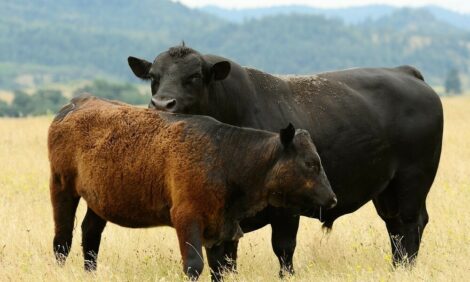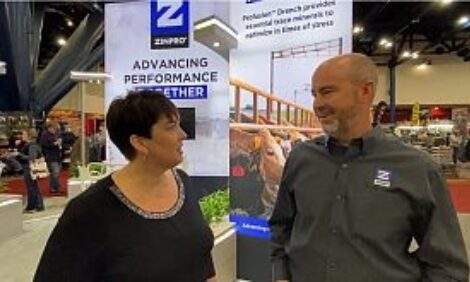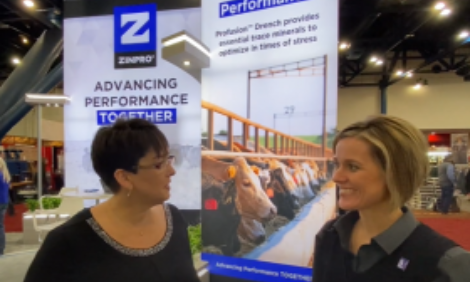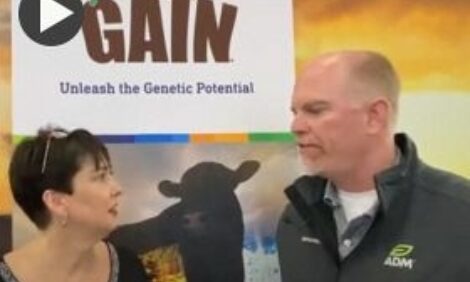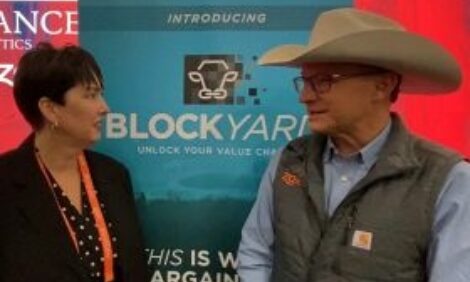



NCBA: Elanco focuses on BRD prevention, management
Bovine respiratory disease, or BRD, costs the U.S. beef industry upwards of $1 billion per year, according to university and private studies.Part of Series:
< Previous Article in Series Next Article in Series >
Bovine respiratory disease, or BRD, costs the U.S. beef industry upwards of $1 billion per year. BRD includes:
- infectious bovine rhinotracheitis (IBR)
- parainfluenza 3 (PI3)
- pneumonia
- shipping fever
Losses caused by slow weight gain for young calves, heifers weighing too little when calving and abysmal weight gain at the feedyard add up quickly.
Managing BRD was the at the forefront with Elanco during the Cattle Industry Convention and NCBA Trade Show last February. Ron Tessman, beef cattle technical consultant, shared Elanco’s perspective with The Cattle Site’s Sarah Mikesell.
“We know that BRD plagues us and it’s the most common disease, no matter if we’re in the cow/calf segment, stocker/backgrounder or all the way to the feedlot. It’s something that concerns everyone,” said Tessman. “When we think about it from our perspective as Elanco, we think about management over medicine and we hope to prevent or mitigate it so that the producer doesn’t have as bad of a problem. We know we’re going to have BRD all the time, but we want it less than that as much as we can.
“That goes back to thinking about our cattle herd and our mother cows and making sure they have appropriate nutrition so they can develop the best calf and have the best immune system, making sure they can produce the best colostrum. So, having a well-vaccinated cow herd, we have the best colostrum so the calf gets the best immunoglobulins to make sure it’s nice and healthy. We have it out in good, clean calving pasture and maybe moving that around and not mixing older calves with younger calves. Because we know if a calf gets a calfhood disease, whether it be diarrhea or something else, that’s going to set it up for BRD down the road.”
“We want to keep that calf healthy, keep the nutrition and have the appropriate vaccinations,” Tessman added. “We’re fortunate at Elanco that we have a full suite of products; killed viral bacteria vaccines and modified-live that we can incorporate. We like to work with producers and their veterinarians to come together to build that best management practice.”
He said if an outbreak does occur, Elanco has a suite of antimicrobials that can be used to address the problem. He also stressed the importance of producers working with veterinarians.
“It’s important to really have the discussion with the producer and veterinarian. What disease have they had in the past? Have they done any diagnostics? Have they brought anything in,” said Tessman.
He noted an experience during his university days when he worked with a small, closed herd with a good vaccination history that suffered a severe BRD outbreak. It turned out management had bought a bull from a sale barn and put it with the herd with no prior quarantine period. After talking with the producer and agreeing upon an antimicrobial, they treated every animal showing signs of illness and had a good outcome. It was communications that made the treatment work so well. And customization of vaccine and treatment programs works well.
“We’ve made some guidelines and some questions that veterinarians and producers can use to help them determine what is the best antimicrobial to use in a specific instance should they have an outbreak,” said Tessman. “That’s one of the things we’re doing. Yes, we sell microbials and we want people to use them. But we want them to use the right antimicrobial at the right time and we don’t want to overuse them. We want to make sure that we maintain the ability to use those antimicrobials appropriately so they continue to work for a long time.”
TheCattleSite News Desk



